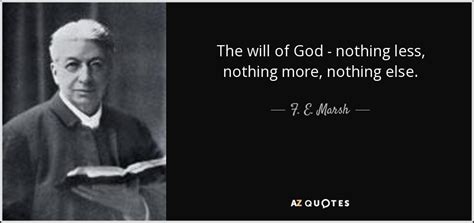A Quote by Oscar Wilde
It is well for his peace that the saint goes to his martyrdom. He is spared the sight of the horror of his harvest.
Related Quotes
Socrates was the chief saint of the Stoics throughout their history ; his attitude at the time of his trial, his refusal to escape, his calmness in the face of death , and his contention that the perpetrator of injustice injures himself more than his victim, all fitted in perfectly with Stoic teaching. So did his indifference to heat and cold, his plainness in matters of food and dress, and his complete independence of all bodily comforts.
When later he [St. Joseph] carried the Child in his arms, acts of loving faith welled up constantly in his heart. It was a worship that pleased our Lord more than that which he receives in heaven. Picture to yourself Saint Joseph, adoring the little Child in his arms as his God. He tells of his readiness to die for Christ, of all his plans to promote Christ's glory, and to win more souls to his love. No lover builds more scintillating plans for his loved one than a saint.
The difference between a man who faces death for the sake of an idea and an imitator who goes in search of martyrdom is that whilst the former expresses his idea most fully in death it is the strange feeling of bitterness which comes from failure that the latter really enjoys; the former rejoices in his victory, the latter in his suffering.
No true Latter-Day Saint, while physically or emotionally able will voluntarily shift the burden of his own or his family's well-being to someone else. So long as he can, under the inspiration of the Lord and with his own labors, he will supply himself and his family with the spiritual and temporal necessities of life.
When a man sought knowledge, it would not be long before it could be seen in his humbleness, his sight, upon his tongue and his hands, in his prayer, in his speech and in his disinterest (zuhd) in worldly allurements. And a man would acquire a portion of knowledge and put it into practice, and it would be better for him than the world and all it contains - if he owned it he would give it in exchange for the hereafter.





































